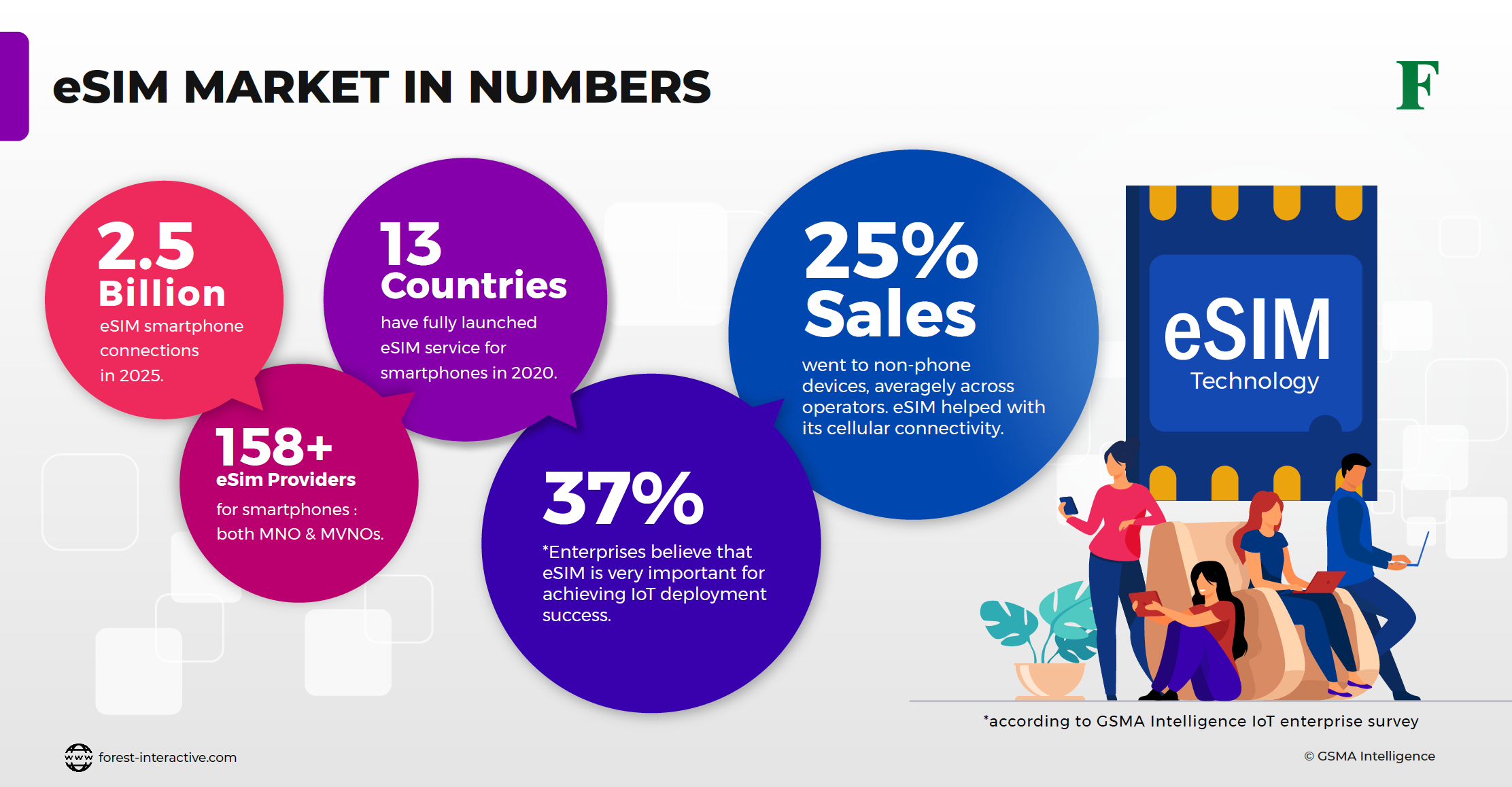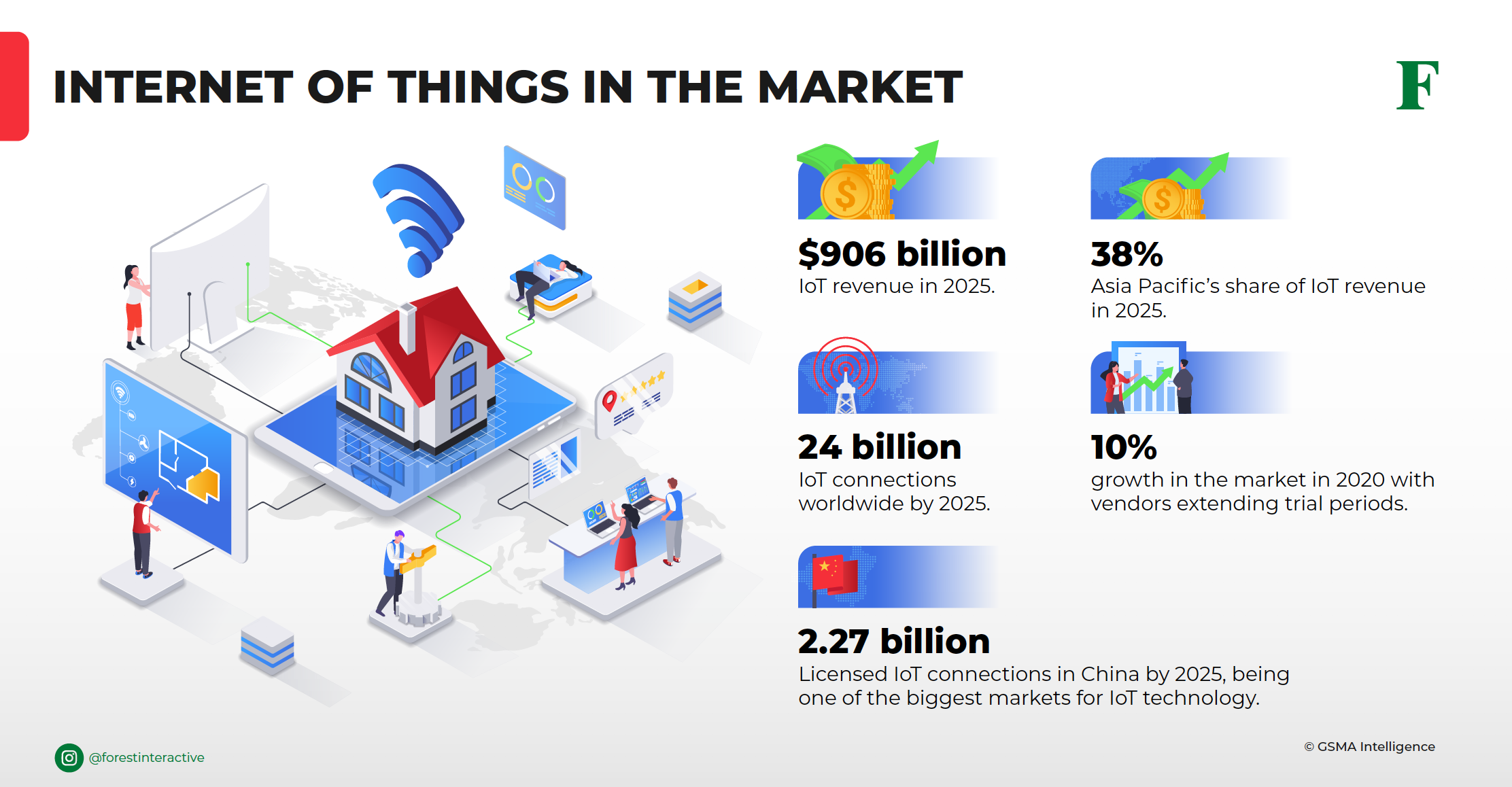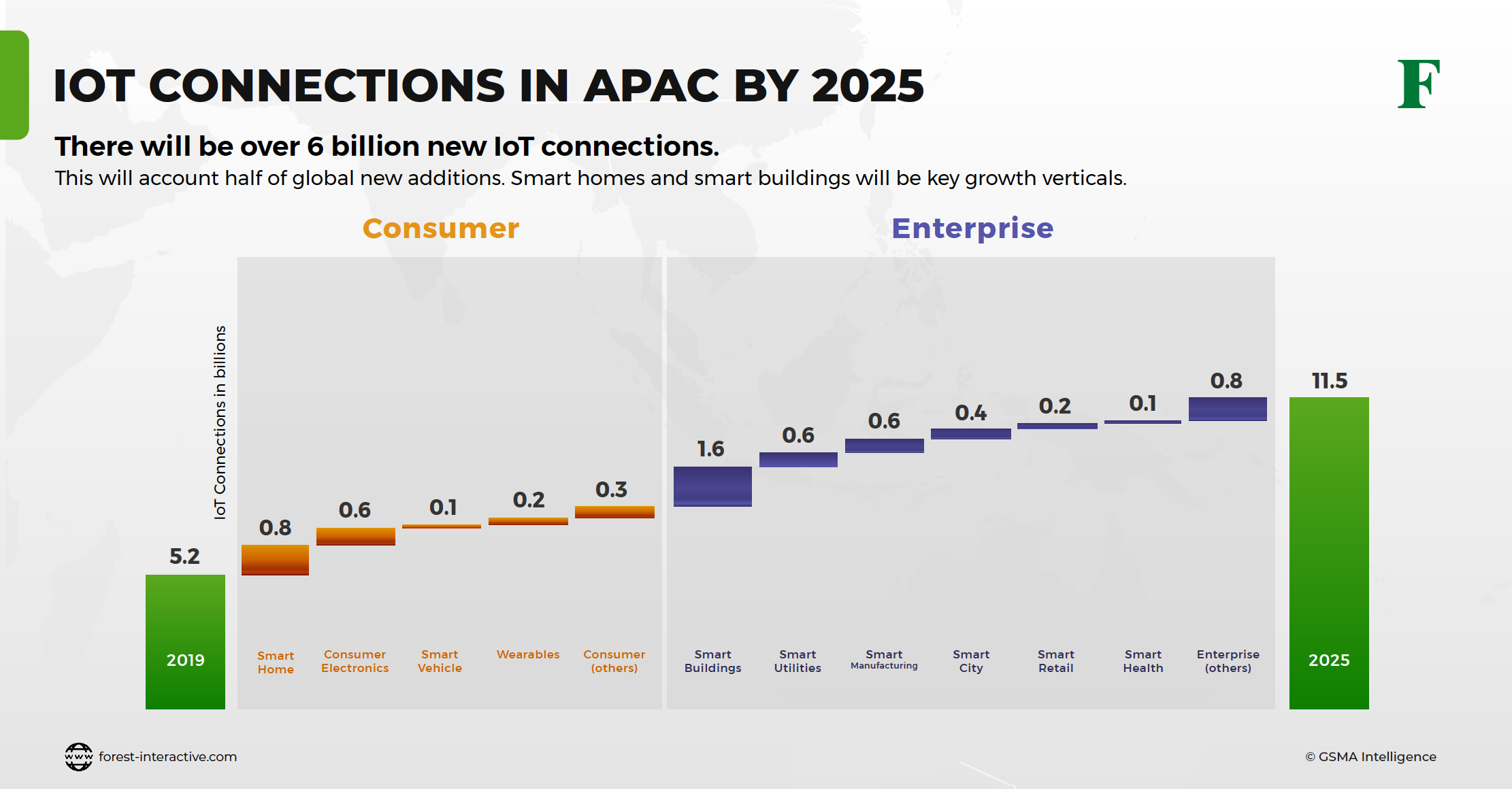
The eSIM market growth in Asia Pacific (APAC) is poised to grow at the highest CAGR of over 18.5% from 2020 to 2027, reshaping the mobile industry ecosystem from the ground up.
KUALA LUMPUR – Many industry analysts and players believe the switch from a traditional, removeable SIM card to a smarter user identification module embedded into a device, aka eSIM, has transformational potential for Internet of Things (IoT), opening up entirely new markets for mobile connectivity. The technology will soon be ubiquitous with two billion devices estimated to be connected via eSIM by 2025, representing an ever-increasing proportion of total mobile connections.
In the case of the IoT, cellular connectivity is fundamental in enabling the technology for IoT market. The globally-backed remote SIM specification has significant impacts on seamless delivery of day-to-day functionality and remote updating demands of the industrial IoT applications. This universal approach will allow multiple mobile network operators (MNOs) to provide global coverage, thus supporting manufacturers in building a new range of products for rapid deployment and optimized operation around the world.
“We can already see a strong demand for eSIM-based connectivity in IoT projects. The technology reduces the traditional complexity of a physical SIM card, and we can expect the switch to accelerate in the coming years as eSIM becomes more readily available and affordable,” said Yoseph Wijaya, Head of Product at Forest Interactive. “This simplified yet powerful technology will allow manufacturers and vendors to focus more on device production and system capabilities rather than mobile connectivity.”
According to the GSMA Intelligence, Asia Pacific accounts for 35% share of IoT revenue in 2020, leading with a Compound Annual Growth Rate (CAGR) of 20% between 2019 and 2025 to reach $343 billion; the fastest of all regions. The region is expected to witness a positive outlook for IoT connections as the government stimulus plans help digital transformation efforts across the region.
“Manufacturers, cities, and municipalities on a global scale are awake and looking for the newest applications and expertise in various areas to optimize process management and improve services,” said Jocelyn Chang, Regional Head at Forest Interactive. “The smart IoT concept, at its best, utilizes information and communication technology to optimize the efficiency of operations and services for entire nations to improve the quality of government services and citizen welfare.”
“For example, in Taiwan, the demand for eSIM-backed IoT services is mainly divided into two segments; Machine to Machine (M2M) and consumer electronics. That being said, the government, alongside with telcos and IoT associations, have already planned and developed an IoT market in many areas. Some of the applications have been operating in the country through public infrastructures such as smart parking, streetlights, smart buildings, intelligent auto-meter reading on electricity or water, and many more. The IoT in consumer electronics has also been up and running, as seen with smart door locks, smart phones, tablets, laptops, and wearables.”
“Moving forward, the widespread demands for eSIM will lay the foundation for device manufacturers to innovate and improve efficiency with products that can be deployed across a wide range of markets. For operators, eSIM will be a tool that connects more devices across different industries, opening the door to new markets and, potentially, enormous increases in number of subscribers,” added Jocelyn.
###
About Forest Interactive (as of July 2020)
Forest Interactive is an award-winning telecommunications platform provider with a global presence across 14 regional offices in 33 countries. Since its founding in 2006, Forest Interactive has been providing innovative and revenue-generating solutions for 50 mobile operators and is connected to more than 1 billion subscribers worldwide. The company enables enriched mobile experiences through highly-customizable platforms such as Digital Service Delivery Platform (DSDP), Mobile Games Publishing, and eVouchers. Forest Interactive is also the organizer for numerous Mobile Esports events in partnership with Moonton and Tencent.
Stay updated with Forest Interactive on LinkedIn, Instagram, Facebook and YouTube.
For more information, please contact:
Forest Interactive Press Bureau
Address: Unit C-7-2, Megan Avenue 2, Jalan Yap Kwan Seng, 50450 Kuala Lumpur, Malaysia.
Phone: +603 2162 2728
Email: [email protected]
Website: forest-interactive.com



 Company Profile
Company Profile Brand Identity Guidelines
Brand Identity Guidelines


